by Carlosfelipe Pardo (with inputs from Jonas Hagen)
This question was asked once by Kerwin Datu, the editor of Global Urbanist. After thinking about it, I agreed that, now that I have created an entire organization revolving around the idea of doing things slowly (or rather, at an appropriate speed), I would have to be able to describe in great detail why the Foundation exists, what it wants to do and how. This is a humble attempt to answer those questions, starting by defining what exactly Despacio is (wish me luck):
What
Slow Research is the name I’ve always thought that the organization should be called. However, due to a legal requirement in Colombia and to some marketing rules (i.e. “never ever give something a long name when it can be short”), it’s now called “Slow Foundation” (in Spanish, “Fundación Despacio” (later we chose to use “Despacio” everywhere and just use the “Fundación” for legal purposes and documents). But in English I will continue to call it Slow Research, for reasons I’ll outline below. The slogan is “challenging the intuitive”, and the symbol (and logo) of Despacio is a flying kite. None of these choices have been the product of a marketing advisory service, and the “experts” to whom we have asked opinions have said that we are crazy to have that name, that logo and that slogan. From these reactions, I feel we are on the right track.
In order to define Despacio, I will provide three definitions based on all our legal and conceptual documents. Here they go:
– It is a non-profit organization that does research on the Slow philosophy and apply its results to improve quality of life and wellbeing in people. It promotes a slow lifestyle (or rather, a tempo giusto lifestyle) that is sustainable and humane.
– It does research to promote quality of life in all stages of the life cycle, working in productive, educational, reproductive sectors of human activity, looking to challenge the intuitive in its respective fields through applied research, acting to improve the wellbeing of community in general.
– It formulates and develops projects to make people feel well, generally based on the Slow Movement (Slow Food, Slow Living, Citta Slow, etc) and based on its own (or others’) research which are rigorous and can contribute to improve situations that require help.
Based on the above, keywords of what we do could be: applied research, sustainability, unorthodox approaches, wellbeing, quality of life.
This raises more questions than answers, but possibly a good idea of how we approach our work.
Why
More importantly, the reasons for having created Slow Research are the following:
– There is a pressing need to reevaluate the role of speed in all human activities and restore balance;
– There are some examples of how to restore such balance, many of which are not well known, seldom understood but generally simple to implement;
– Generally, the Slow philosophy is seen (and to an extent it is an appropriate perception of reality) as la-di-da ideas and nobody really knows what their impacts can be (or are);
– The existent alternatives to “fast living” are too extreme or inadequate to be realistic and applicable in modern society (e.g. the back-to-the-lands movements, Amish communities, Kibbutz, etc);
– We must make it clear that “going slow” doesn’t mean moving at 2 km/h. It means finding the appropriate speed to live and work, and understand how to manage such speed (or slowness). We literally despise the invitation to “go slow period” without a comprehensive analysis of a situation.
– People don’t know how to use technology (i.e. they are stuck to the screen of their BlackBerry, they play videogames until they drop, they drive at excessive speeds);
– and finally:
o People are feeling miserably…
o Cities are doing miserably…
o the economy is doing miserably…
and they shouldn’t. And we can help.
What
Slow Research is currently just a small puddle of project ideas that need adequate financing, and short (and cheap) activities that try to demonstrate how the slow philosophy can be implemented. In general, we want to do the following:
– Write documents/papers
– Deliver courses/workshops
– Provide advisory services
– Continue doing small but significant activities.
With whom!
Despacio begun with an idea by me which was scrutinized and discussed with two other people (Adriana Hurtado and Natalia Ucrós) in early 2010. Then I chose a friend (Juanita Sánchez) as our President of the Board (we didn’t even have legal paperwork, but she accepted the position gladly), and continued by hiring one person in 2011 (Carlos Moreno) to establish the Foundation legally and, in the end, help me believe that this thing will actually work. That process took around one year and a half. The past two years have consisted of generating some staff momentum and getting money…. Anyone interested?
More info about Despacio in www.despacio.org (mostly in Spanish, for now…).
And some references that may be useful:
Andrews, C. (2006). Slow is beautiful : new visions of community, leisure and joie de vivre. Gabriola, B.C., New Society Publishers.
Brand, S. (1998). The clock of the long now : time and responsibility. New York, N.Y., Basic Books.
Elgin, D. (1993). Voluntary simplicity : toward a way of life that is outwardly simple, inwardly rich. New York, Quill.
Eriksen, T. H. (2001). Tyranny of the moment : fast and slow time in the information age. London, Pluto.
Gleick, J. (2000). Faster: The acceleration of just about everything. New York, Vintage.
Honoré, C. (2004). Elogio de la lentitud: un movimiento mundial desafía el culto a la velocidad. Buenos Aires, Nuevo extremo.
Kundera, M. (2000). La Lentitud. Barcelona, Anagrama.
Metz, D. (2008). The Limits to travel : how far will you go? London, Earthscan.
Pardo, C. F. and J. Burbano-Valente (2007). «Las trampas de la velocidad: análisis de la lectura cultural de dos organizaciones.» Universitas Psychologica 6(1): 131-142.
Parkins, W. and G. Craig (2006). Slow living. Oxford, UK, Berg.
Portinari, F. and Slow Food. (1989). «The Slow Food Manifesto.»
Tomlinson, J. (2007). The culture of speed : the coming of immediacy. London ; Thousand Oaks, CA, SAGE Publications.

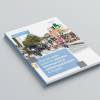
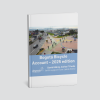
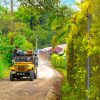
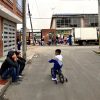
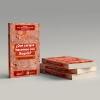
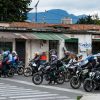

Comentarios recientes